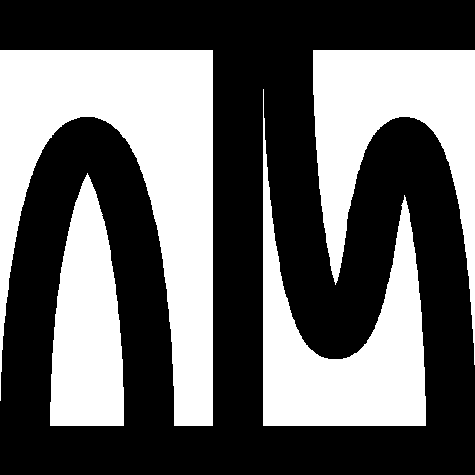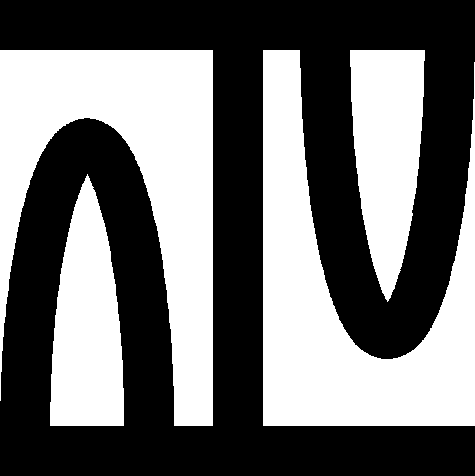:: CLVECT_3 semantic presentation 
 :: Showing IDV graph ... (Click the Palm Trees again to close it)
:: Showing IDV graph ... (Click the Palm Trees again to close it)
deffunc H1( ComplexUnitarySpace) -> Element of the carrier of $1 = 0. $1;
:: deftheorem Def1 defines Partial_Sums CLVECT_3:def 1 :
theorem Th1: :: CLVECT_3:1 
 :: Showing IDV graph ... (Click the Palm Tree again to close it)
:: Showing IDV graph ... (Click the Palm Tree again to close it) 
theorem Th2: :: CLVECT_3:2 
 :: Showing IDV graph ... (Click the Palm Tree again to close it)
:: Showing IDV graph ... (Click the Palm Tree again to close it) 
theorem Th3: :: CLVECT_3:3 
 :: Showing IDV graph ... (Click the Palm Tree again to close it)
:: Showing IDV graph ... (Click the Palm Tree again to close it) 
theorem :: CLVECT_3:4 
 :: Showing IDV graph ... (Click the Palm Tree again to close it)
:: Showing IDV graph ... (Click the Palm Tree again to close it) 
theorem :: CLVECT_3:5 
 :: Showing IDV graph ... (Click the Palm Tree again to close it)
:: Showing IDV graph ... (Click the Palm Tree again to close it) 
:: deftheorem Def2 defines summable CLVECT_3:def 2 :
:: deftheorem defines Sum CLVECT_3:def 3 :
theorem :: CLVECT_3:6 
 :: Showing IDV graph ... (Click the Palm Tree again to close it)
:: Showing IDV graph ... (Click the Palm Tree again to close it) 
theorem :: CLVECT_3:7 
 :: Showing IDV graph ... (Click the Palm Tree again to close it)
:: Showing IDV graph ... (Click the Palm Tree again to close it) 
theorem :: CLVECT_3:8 
 :: Showing IDV graph ... (Click the Palm Tree again to close it)
:: Showing IDV graph ... (Click the Palm Tree again to close it) 
theorem Th9: :: CLVECT_3:9 
 :: Showing IDV graph ... (Click the Palm Tree again to close it)
:: Showing IDV graph ... (Click the Palm Tree again to close it) 
theorem Th10: :: CLVECT_3:10 
 :: Showing IDV graph ... (Click the Palm Tree again to close it)
:: Showing IDV graph ... (Click the Palm Tree again to close it) 
theorem :: CLVECT_3:11 
 :: Showing IDV graph ... (Click the Palm Tree again to close it)
:: Showing IDV graph ... (Click the Palm Tree again to close it) 
theorem Th12: :: CLVECT_3:12 
 :: Showing IDV graph ... (Click the Palm Tree again to close it)
:: Showing IDV graph ... (Click the Palm Tree again to close it) 
theorem Th13: :: CLVECT_3:13 
 :: Showing IDV graph ... (Click the Palm Tree again to close it)
:: Showing IDV graph ... (Click the Palm Tree again to close it) 
theorem :: CLVECT_3:14 
 :: Showing IDV graph ... (Click the Palm Tree again to close it)
:: Showing IDV graph ... (Click the Palm Tree again to close it) 
:: deftheorem defines Sum CLVECT_3:def 4 :
theorem Th15: :: CLVECT_3:15 
 :: Showing IDV graph ... (Click the Palm Tree again to close it)
:: Showing IDV graph ... (Click the Palm Tree again to close it) 
theorem Th16: :: CLVECT_3:16 
 :: Showing IDV graph ... (Click the Palm Tree again to close it)
:: Showing IDV graph ... (Click the Palm Tree again to close it) 
theorem Th17: :: CLVECT_3:17 
 :: Showing IDV graph ... (Click the Palm Tree again to close it)
:: Showing IDV graph ... (Click the Palm Tree again to close it) 
theorem Th18: :: CLVECT_3:18 
 :: Showing IDV graph ... (Click the Palm Tree again to close it)
:: Showing IDV graph ... (Click the Palm Tree again to close it) 
theorem Th19: :: CLVECT_3:19 
 :: Showing IDV graph ... (Click the Palm Tree again to close it)
:: Showing IDV graph ... (Click the Palm Tree again to close it) 
theorem :: CLVECT_3:20 
 :: Showing IDV graph ... (Click the Palm Tree again to close it)
:: Showing IDV graph ... (Click the Palm Tree again to close it) 
:: deftheorem defines Sum CLVECT_3:def 5 :
theorem :: CLVECT_3:21 
 :: Showing IDV graph ... (Click the Palm Tree again to close it)
:: Showing IDV graph ... (Click the Palm Tree again to close it) 
theorem :: CLVECT_3:22 
 :: Showing IDV graph ... (Click the Palm Tree again to close it)
:: Showing IDV graph ... (Click the Palm Tree again to close it) 
theorem Th23: :: CLVECT_3:23 
 :: Showing IDV graph ... (Click the Palm Tree again to close it)
:: Showing IDV graph ... (Click the Palm Tree again to close it) 
theorem :: CLVECT_3:24 
 :: Showing IDV graph ... (Click the Palm Tree again to close it)
:: Showing IDV graph ... (Click the Palm Tree again to close it) 
:: deftheorem defines Sum CLVECT_3:def 6 :
:: deftheorem defines Sum CLVECT_3:def 7 :
:: deftheorem Def8 defines absolutely_summable CLVECT_3:def 8 :
theorem :: CLVECT_3:25 
 :: Showing IDV graph ... (Click the Palm Tree again to close it)
:: Showing IDV graph ... (Click the Palm Tree again to close it) 
theorem :: CLVECT_3:26 
 :: Showing IDV graph ... (Click the Palm Tree again to close it)
:: Showing IDV graph ... (Click the Palm Tree again to close it) 
theorem :: CLVECT_3:27 
 :: Showing IDV graph ... (Click the Palm Tree again to close it)
:: Showing IDV graph ... (Click the Palm Tree again to close it) 
theorem :: CLVECT_3:28 
 :: Showing IDV graph ... (Click the Palm Tree again to close it)
:: Showing IDV graph ... (Click the Palm Tree again to close it) 
theorem Th29: :: CLVECT_3:29 
 :: Showing IDV graph ... (Click the Palm Tree again to close it)
:: Showing IDV graph ... (Click the Palm Tree again to close it) 
theorem Th30: :: CLVECT_3:30 
 :: Showing IDV graph ... (Click the Palm Tree again to close it)
:: Showing IDV graph ... (Click the Palm Tree again to close it) 
theorem :: CLVECT_3:31 
 :: Showing IDV graph ... (Click the Palm Tree again to close it)
:: Showing IDV graph ... (Click the Palm Tree again to close it) 
theorem :: CLVECT_3:32 
 :: Showing IDV graph ... (Click the Palm Tree again to close it)
:: Showing IDV graph ... (Click the Palm Tree again to close it) 
theorem :: CLVECT_3:33 
 :: Showing IDV graph ... (Click the Palm Tree again to close it)
:: Showing IDV graph ... (Click the Palm Tree again to close it) 
theorem :: CLVECT_3:34 
 :: Showing IDV graph ... (Click the Palm Tree again to close it)
:: Showing IDV graph ... (Click the Palm Tree again to close it) 
theorem Th35: :: CLVECT_3:35 
 :: Showing IDV graph ... (Click the Palm Tree again to close it)
:: Showing IDV graph ... (Click the Palm Tree again to close it) 
theorem :: CLVECT_3:36 
 :: Showing IDV graph ... (Click the Palm Tree again to close it)
:: Showing IDV graph ... (Click the Palm Tree again to close it) 
theorem Th37: :: CLVECT_3:37 
 :: Showing IDV graph ... (Click the Palm Tree again to close it)
:: Showing IDV graph ... (Click the Palm Tree again to close it) 
theorem :: CLVECT_3:38 
 :: Showing IDV graph ... (Click the Palm Tree again to close it)
:: Showing IDV graph ... (Click the Palm Tree again to close it) 
theorem Th39: :: CLVECT_3:39 
 :: Showing IDV graph ... (Click the Palm Tree again to close it)
:: Showing IDV graph ... (Click the Palm Tree again to close it) 
theorem Th40: :: CLVECT_3:40 
 :: Showing IDV graph ... (Click the Palm Tree again to close it)
:: Showing IDV graph ... (Click the Palm Tree again to close it) 
theorem :: CLVECT_3:41 
 :: Showing IDV graph ... (Click the Palm Tree again to close it)
:: Showing IDV graph ... (Click the Palm Tree again to close it) 
theorem :: CLVECT_3:42 
 :: Showing IDV graph ... (Click the Palm Tree again to close it)
:: Showing IDV graph ... (Click the Palm Tree again to close it) 
:: deftheorem Def9 defines * CLVECT_3:def 9 :
theorem :: CLVECT_3:43 
 :: Showing IDV graph ... (Click the Palm Tree again to close it)
:: Showing IDV graph ... (Click the Palm Tree again to close it) 
theorem :: CLVECT_3:44 
 :: Showing IDV graph ... (Click the Palm Tree again to close it)
:: Showing IDV graph ... (Click the Palm Tree again to close it) 
theorem :: CLVECT_3:45 
 :: Showing IDV graph ... (Click the Palm Tree again to close it)
:: Showing IDV graph ... (Click the Palm Tree again to close it) 
theorem Th46: :: CLVECT_3:46 
 :: Showing IDV graph ... (Click the Palm Tree again to close it)
:: Showing IDV graph ... (Click the Palm Tree again to close it) 
theorem :: CLVECT_3:47 
 :: Showing IDV graph ... (Click the Palm Tree again to close it)
:: Showing IDV graph ... (Click the Palm Tree again to close it) 
Lm1:
for s being Complex_Sequence st s is convergent holds
s is bounded
theorem Th48: :: CLVECT_3:48 
 :: Showing IDV graph ... (Click the Palm Tree again to close it)
:: Showing IDV graph ... (Click the Palm Tree again to close it) 
theorem :: CLVECT_3:49 
 :: Showing IDV graph ... (Click the Palm Tree again to close it)
:: Showing IDV graph ... (Click the Palm Tree again to close it) 
theorem :: CLVECT_3:50 
 :: Showing IDV graph ... (Click the Palm Tree again to close it)
:: Showing IDV graph ... (Click the Palm Tree again to close it) 
:: deftheorem Def10 defines Cauchy CLVECT_3:def 10 :
theorem :: CLVECT_3:51 
 :: Showing IDV graph ... (Click the Palm Tree again to close it)
:: Showing IDV graph ... (Click the Palm Tree again to close it) 
theorem Th52: :: CLVECT_3:52 
 :: Showing IDV graph ... (Click the Palm Tree again to close it)
:: Showing IDV graph ... (Click the Palm Tree again to close it) 
theorem Th53: :: CLVECT_3:53 
 :: Showing IDV graph ... (Click the Palm Tree again to close it)
:: Showing IDV graph ... (Click the Palm Tree again to close it) 
theorem :: CLVECT_3:54 
 :: Showing IDV graph ... (Click the Palm Tree again to close it)
:: Showing IDV graph ... (Click the Palm Tree again to close it) 






















































